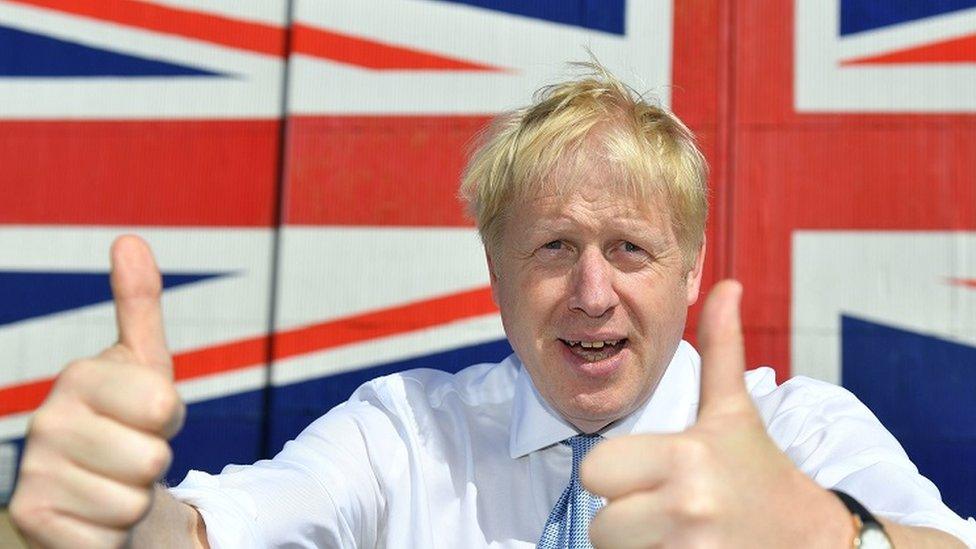Partygate: Minister defends civil servants over Johnson police referral
- Published
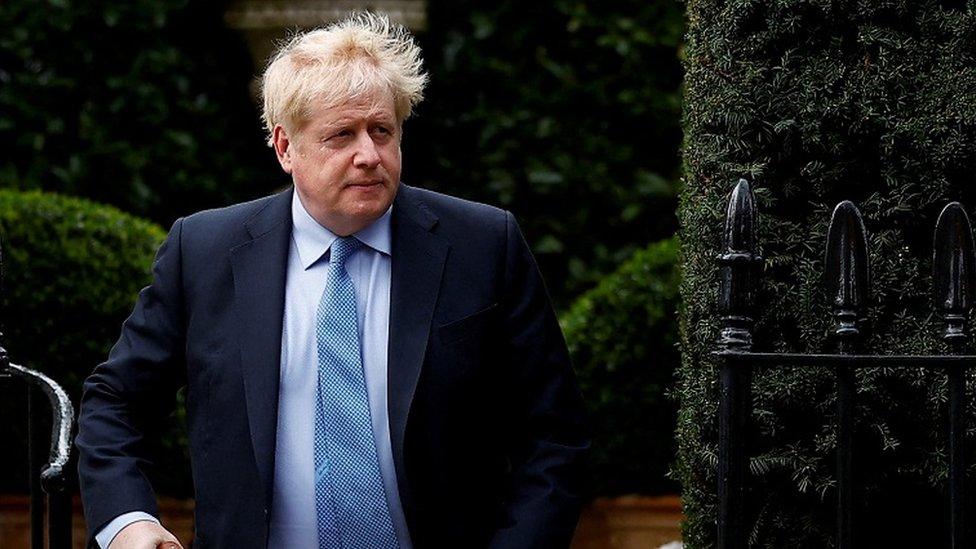
Boris Johnson has had no contact from the police, the BBC understands
The justice secretary has defended officials who passed material to the police relating to Boris Johnson over potential rule breaches during Covid.
Civil servants referred information to two police forces after reviewing the former PM's official diary.
Alex Chalk said officials would have been criticised if they had "sat on" the information.
Mr Johnson's spokesman said it was "totally untrue" there had been any further breaches of Covid rules.
The Cabinet Office said officials had been obliged to disclose the documents to the police under civil service rules.
The Times, which first reported, external the story, says Mr Johnson has been referred to Thames Valley police because his ministerial diary revealed visits by family and friends to Chequers - the prime minister's country house in Buckinghamshire - during the pandemic.
Mr Johnson's diary was being considered by lawyers "so that material can be provided" to the Covid inquiry, Mr Chalk told BBC Radio Gloucestershire.
Lawyers "saw material that they had a concern about", Mr Chalk said.
This was then passed to civil servants, who in turn referred it to police "without any involvement with ministers", Mr Chalk added.
He said: "If they had sat on it then people would have criticised them for that - if they had passed it on, others would criticise.
"They have been put in a quite a difficult position and ultimately it comes down to what is in the documents, which I haven't seen."
The BBC understands Mr Johnson has had no contact from the police.
The spokesman for the former prime minister said: "The events in question were all within the rules either because they were held outdoors or came within another lawful exception.
"They include regular meetings with civil servants and advisers.
"It appears some within government have decided to make unfounded suggestions both to the police and to the Privileges Committee - many will conclude that this has all the hallmarks of yet another politically motivated stitch-up."
The spokesman said Mr Johnson's lawyers had written to the Cabinet Office, as well as the Commons Privileges Committee, "explaining that the events were lawful and were not breaches of any Covid regulations".
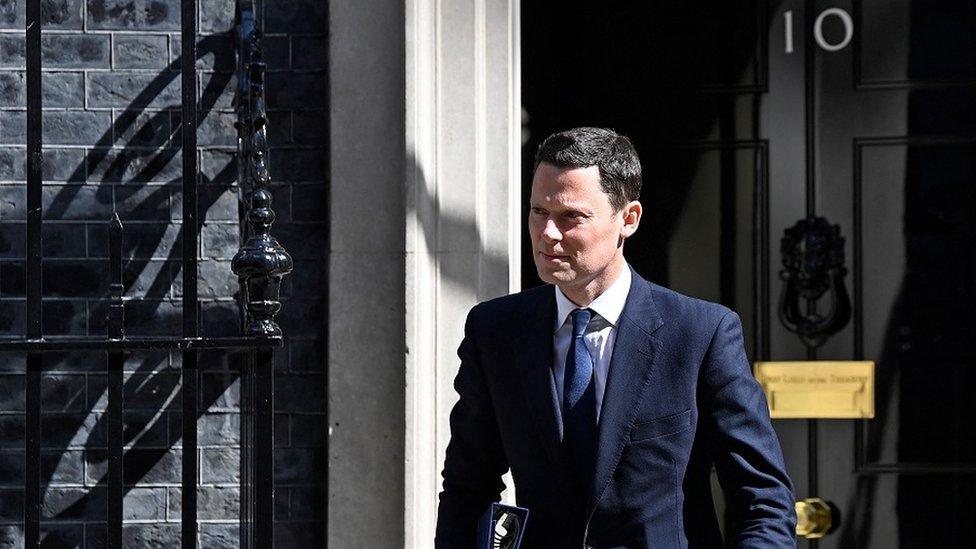
Alex Chalk was appointed Justice Secretary in April after Dominic Raab resigned
Former leader of the House of Commons Jacob Rees-Mogg said the police referral "shows that some people will never rest until they have hounded Boris further and further".
Mr Rees-Mogg told GB News he went to Chequers, the prime ministers official country house, during the period when alleged breaches occurred.
"I was invited there with my children, entirely in accordance with the rules," Mr Rees-Mogg said."Another senior government minister was going to come, but the prime minister cancelled him because you were only allowed to have one family present at the time."The prime minister was diligent about it."
Thames Valley Police said it had "received a report of potential breaches of the Health Protection Regulations between June 2020 and May 2021 at Chequers, Buckinghamshire".
The Met Police released a similar statement but said their information related to potential breaches in Downing Street.
The new findings have also been passed to the Commons Privileges Committee, which is investigating whether Mr Johnson misled Parliament over Covid rule-breaking events in government buildings.
Mr Johnson resigned as prime minister last July, in part due to public anger over revelations he broke Covid lockdown rules.
In April 2022, he received a fine from the police for breaking lockdown rules after attending a gathering on his birthday in June 2020.
And, in May 2022, a report by then-senior civil servant Sue Gray set out a series of social events held by staff in Downing Street which broke the rules.
Related topics
- Published4 September 2022
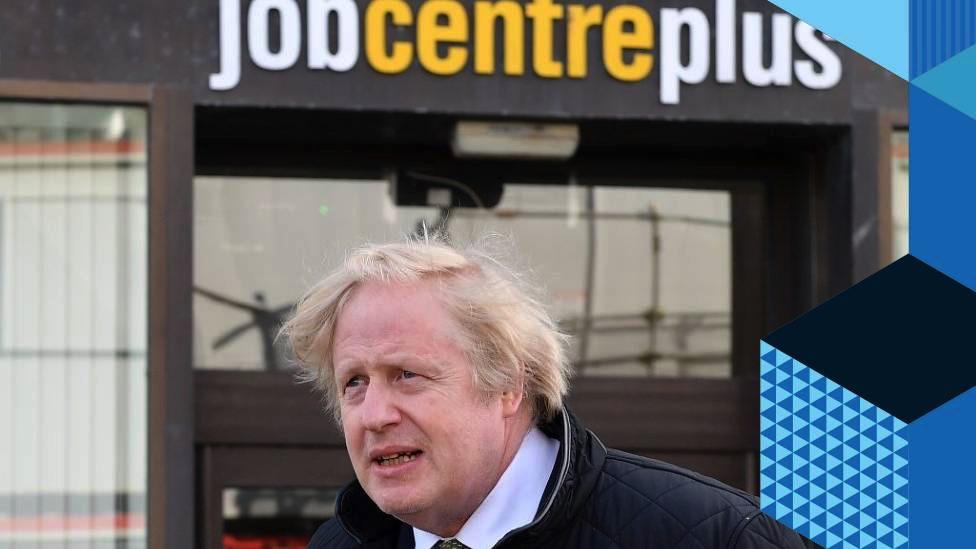
- Published21 March 2023
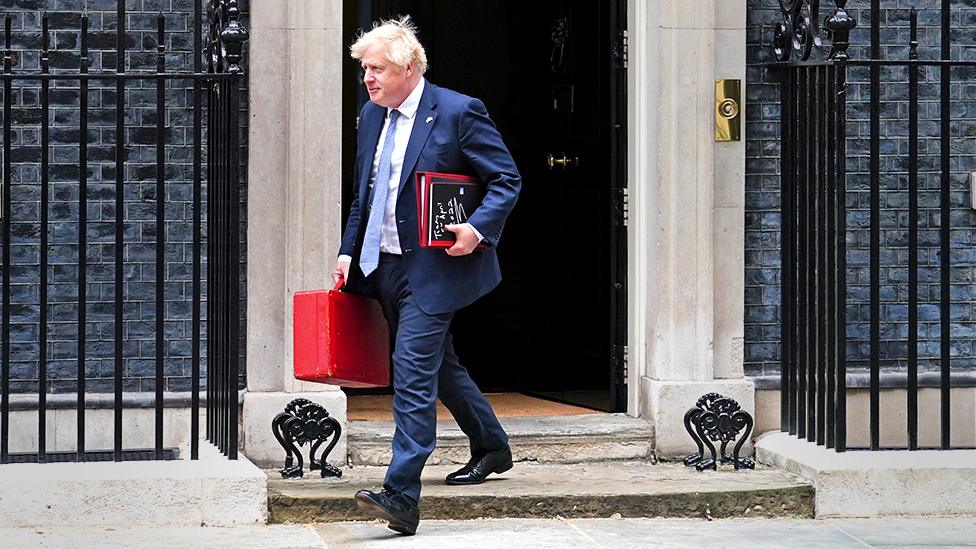
- Published15 June 2023
